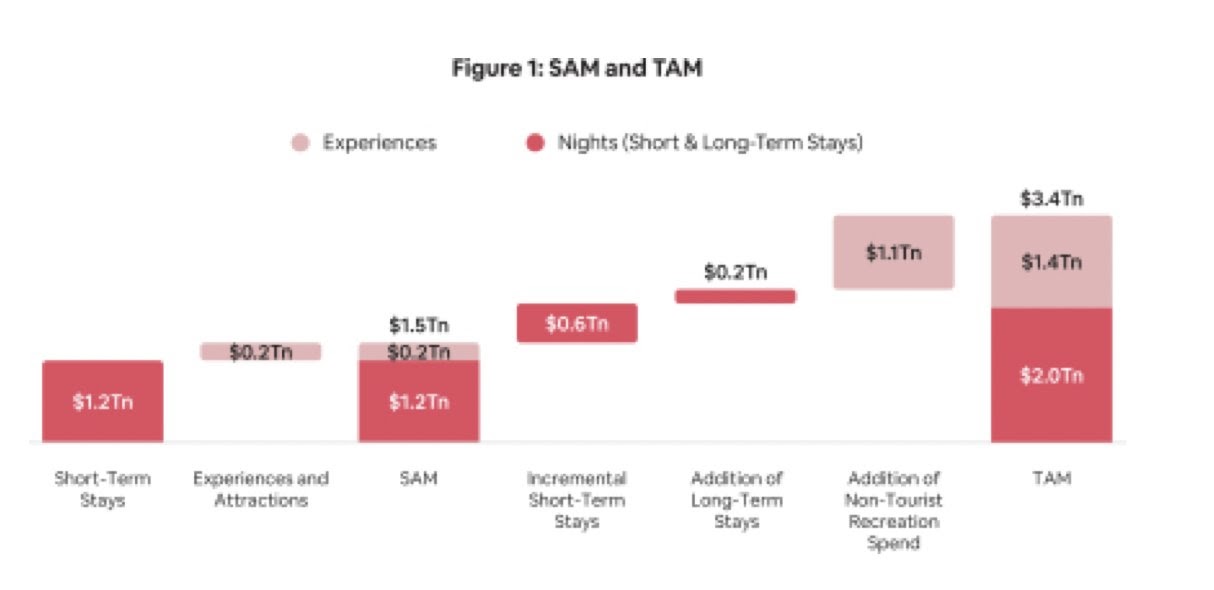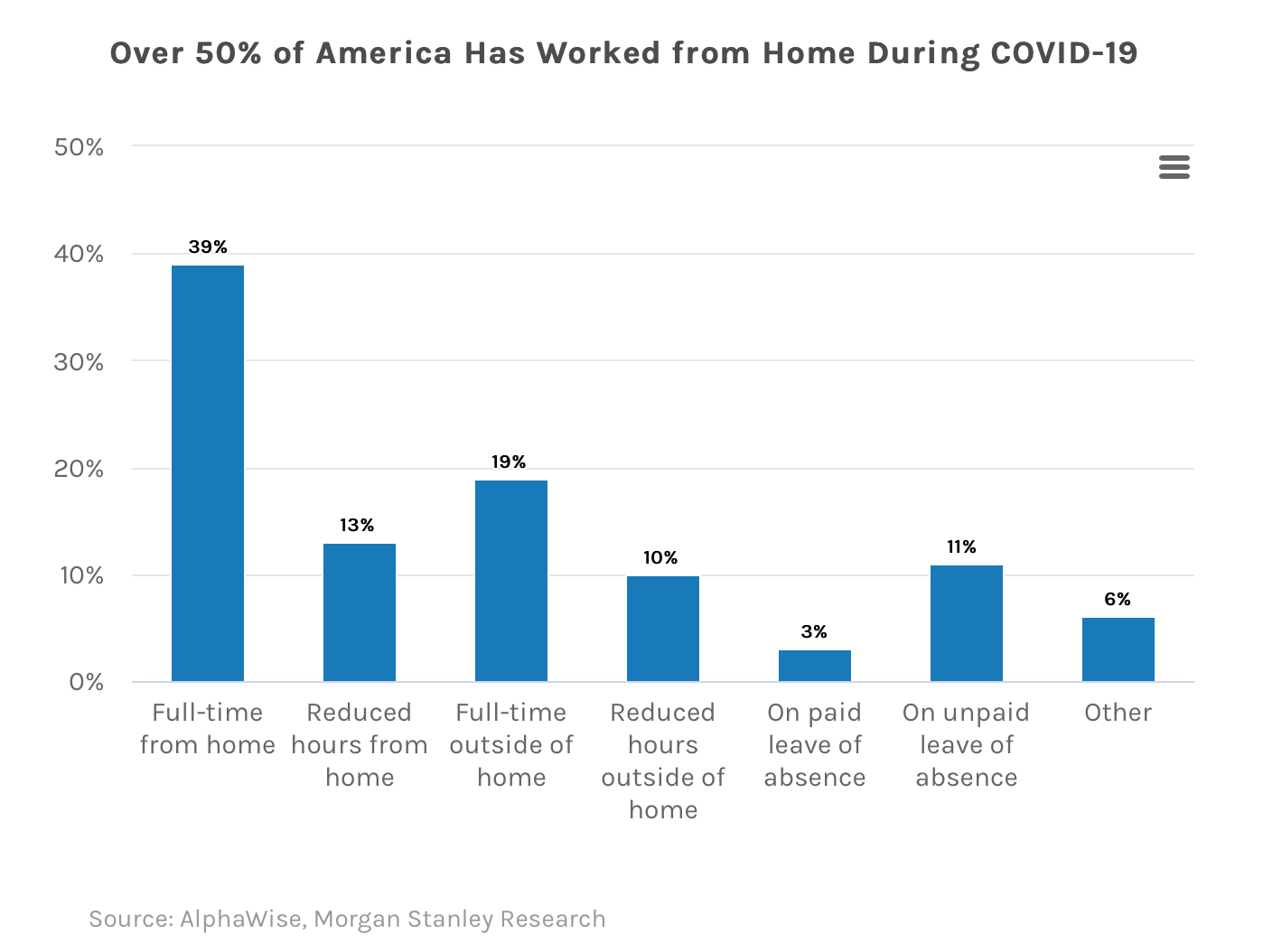Airbnb (ABNB), the massive, digitally-enabled short-term lodging company, registered its IPO prospectus with the SEC. Let us jump right in as we discuss the huge market opportunity that ABNB represents and the massive competitive advantages it has, particularly in the context of a transformational era in human history.
A Huge Market Opportunity
The demographic and technological changes of the twenty-first century have transformed the nature of housing and lodging. The demand for housing solutions that are more home-like, flexible, urban, serviced and shared has pulverized the old notions of standardized accommodation.
The changes are not simply on the demand side: there has been a surfeit of under-utilized spaces in need of occupants. This is part of a broader economic transformation that has given birth to the sharing economy. ABNB’s innovation has been to take advantage of these technological and demographic changes to build a matchmaking platform that connects the two sides of the supply-demand equation: hosts and guests. The extent of the housing and lodging revolution can be seen in the company’s addressable market as per its filings:
Normally, companies tend to overestimate the size of their addressable market, but there are reasons to believe that despite the hit ABNB’s numbers took thanks to Covid-19, the global pandemic may have increased the size of the addressable market and that this market will continue to grow. Many firms have taken Covid-19 not as a short-term disruption to their business models, but as a push to localize their businesses and allow for more remote work.
For example, Facebook (NASDAQ:FB) CEO, Mark Zuckerberg has talked about 50% of Facebook’s employees working remotely within the next 5-10 years. The effect of this will be to make travel more possible to people who work remotely because location will no longer matter. HBR and Morgan Stanley (NYSE:MS) have estimated that the proportion of Americans working remotely lept from 5% pre-Covid to about 50% by April 2020. Many of those people will return to office work, many will not. The graph below shows the transformation that Covid-19 has wrought.
Remote work not only makes travel more possible, it alters the economics of working in a big city. As Bloomberg noted, rentals in big cities are often so high that a person taking a pay cut by moving out of the city may still end up with more disposable income. The presence of choice will certainly lead to more people moving out of big cities and this will expand ABNB’s opportunity. ABNB does not have to offer accommodation with the same level of standardized quality as competitors like Marriott, the world’s largest hotelier, it does have to excel in the sharing economy, and in this area, it is the best.
Airbnb Has a Huge Moat
In theory, a matchmaker, or what economists call a multi-sided platform, is supposed to generate network effects that drive winner-takes-all markets.
The momentum-driven flywheel is the heart of a business such as ABNB’s. Each marginal user of the matchmaking platform adds value to the network to current users, thereby attracting new users and creating formidable barriers to entry, making the network even more valuable.
ABNB’s value is driven by three attributes: the minimum viable market share for breaking even; the degree of customer captivity; and lastly, the degree to which the data the platform collects helps with product and pricing optimization.
Minimum viable market share:
Two things determine what the minimum viable market share can be: fixed-cost requirements and product/service complexity. Local density of available property inventory drives the financial viability of ABNB. Product complexity and consequent marketplace liquidity needed to create a competitive service, are very high. A rival has to contend with the fact rising marginal density in listings at the local level does not saturate. The greater the density, the more guests are attracted and the more occupancy rates rise, reinforcing the value of the network. It is very likely that a good chunk of its listings is of properties dedicated to ABNB. The issue is big enough that the president of the French Hotel Federation called ABNB “an underground shadow economy.”
Although ABNB is largely a variable-cost business, it has significant fixed-cost requirements. Between 2018 and 2019, its net property and equipment were around $300 million for each year and nearly $390 million in operating lease right-of-use assets. Guests can use ABNB services from anywhere in the world, so hosts aggregate around it because in this market, what counts is not merely the density of local listings, but the density of listings elsewhere. In other words, a guest will tend toward ABNB because ABNB has the most listings for any major city that the guest will be traveling to, and this in turn will attract hosts. The result of this is that the total fixed costs needed to knock ABNB off its perch on a global level are extremely high. Added to this, ABNB enjoys economies of scale that a new entrant cannot easily get around.
Just to break even, potential rivals will need to steal a huge chunk of market share and this leads to an oligopolistic market. ABNB’s share of US consumer lodging spending in 2019 was 20%, according to data from Second Measure. Spending on ABNB is now second only to Marriott.
The fixed-cost requirements of short-term lodging has led to many of ABNB’s direct competitors being acquired by international travel companies. Homeaway Inc., for example, which has half of ABNB’s listings, was acquired by Expedia (NASDAQ:EXPE)., and FlipKey Inc., which has a third of ABNB’s listings, was bought by TripAdvisor Inc (NASDAQ:TRIP). The process of listing property takes sufficient time that a rival would not be able to quickly move market share.
Customer captivity: Customer captivity is very strong. As we alluded to above, there is already evidence that many listings are dedicated to ABNB. This implies that market share is not likely to move very quickly so that competitors have to be willing to accept a long period of losses in order to reach a market viable share.
Though we live in an age of convenience where competitors are a click away, people are not very willing to use multiple platforms to let-out their properties. Trust plays a key role here. It is simply more comfortable to establish a relationship with one platform than to hop from platform to platform. Furthermore, because trust is so important, the system of reviews used to keep guests and hosts accountable, not only leads to good behavior, but it encourages you to stay within the ecosystem in order to build your trustworthiness.
Users trust ABNB because the platform ensures that users are held accountable through the system of user reviews. With a reputation at stake, everybody is motivated to be at their best. Safety and trustworthiness are key to the running of the business. It is possible to think of ABNB as a reputable company in as much as it is a sharing company.
Data: The user data generated by ABNB gives them a granular idea of travel plans, but the kinds of places one likes, budget, etc, allowing them to optimize pricing and product offerings. It is hard to steal customers from ABNB while lacking this nuanced perspective of the clients.
Conclusion
Protecting investments is vital and a business like ABNB displays all the qualities of a firm that will be hard to knock off its perch. The combination of a huge market opportunity and a very wide moat and excellent prospects leads to the conclusion that buying ABNB during the pandemic when it has been hit so hard, represents sound business.


